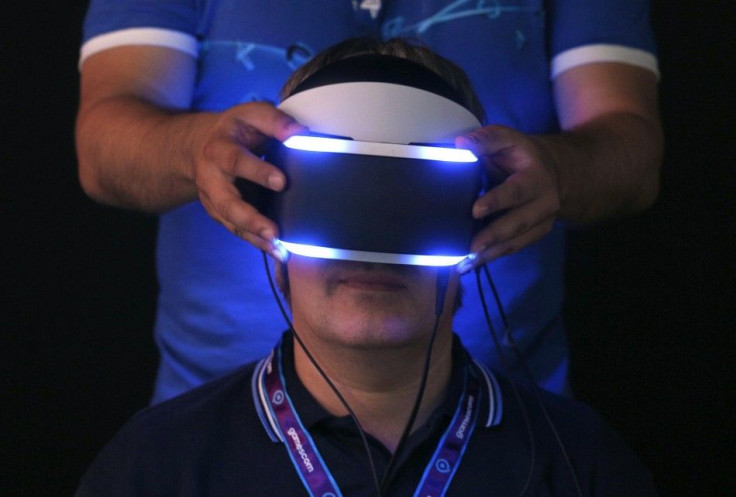Valve And HTC Join Forces To Create Vive VR Headset

The promising virtual reality market is heating up with the emergence of a brand new entrant. Valve has now joined Microsoft, Facebook and Samsung in the VR wearable device fray. HTC has just revealed that it will be making Valve's Steam VR headset. The Oculus Rift competitor has been named Vive and the revelation came a full week before Valve's demonstration of the device at the Game Developers Conference (GDC), which is currently underway since its commencement from March 2.
The developer edition is slated to hit the market sometime this spring, whereas the final retail version will be released later in the holiday season this year. Valve has already confirmed its presence in the GDC and it has promised to showcase the developer edition of the Vive at the event. Game developers will not only get to know the capabilities of the VR platform, but they also have an opportunity to experience the technology first-hand with at the event.
According to PC Gamer, the Vive is pretty advanced in terms of hardware and will feature full integration into Valve's Steam ecosystem. The developer edition has been confirmed to incorporate a pair of 1200x1080 screens – that is, one for each eye – and an impressive refresh rate of 90Hz for a smoother experience. HTC believes that the high resolution and faster frame rate allows for "photorealistic imagery" and the faster refresh rate eliminates jitter associated with solutions offering slower refresh rates.
The wide range of sensor arrays incorporated in the device puts it ahead of the competition. In addition to a gyrosensor and accelerometer to accurately track head movement, the Vive employs a laser positions sensor for added precision. This combination is claimed to allow the VR headset to track user head movements to accuracy that's precise to one-tenth of a degree.
The headset is claimed to be lightweight, which should allow users to wear it for longer durations without experiencing fatigue. The developer version will feature side-mounted headphone jacks, which will allow users to connect portable audio solutions of their choice. However, consumers may not have the option since the retail version is said to feature a built-in audio solution.
However, what sets the Vive apart from the competition is what's marketed as a "full room-scale" experience. The Verge reports that the Vive ships with a base station setup dubbed as the Steam VR base station. It can track not only the rotational scope of the headset's orientation, but a pair of them can pinpoint the physical location of the headset within a room. In layman's terms, this will allow you to walk around the room, while the base stations translate your movement in the real world into that of your avatar in the VR space.
HTC claims that this feature will let you explore virtual space more and interact with objects intuitively from "every angle" and "truly interact" with the VR environment. The maximum range of user tracking is restricted to spaces up to 15x15 feet.
However, it would be foolhardy to expect a Valve product without a physical controller. The Vive incorporates wireless controllers made by HTC, which will allow movement and manipulation of the VR space without the need to physically move around your room. This should allow the majority of city dwellers living in small apartments to enjoy an undiluted VR experience and prevent a Kinect-like space conundrum, as illustrated by CNET.
"We believe that virtual reality will totally transform the way that we interact with the world," said HTC's Peter Chou at the press event in Barcelona. "Virtual reality will become a mainstream technology for the rest of the world."
Chou's promise of a mainstream acceptance of the Vive VR platform is backed by the project's partnership with media houses such as HBO and Lionsgate, which could potentially result in these studios popular offerings get the VR treatment. Additionally, partners such as Google, National Palace Museum and fishing sim developer Dovetail Games could deliver web-based, educational and gaming-centric content.
In case you have any feedback or wish tip us off, the author can be contacted at nachiketpg13@hotmail.com
HTC RE Vive (credit: HTC YouTube channel)





















